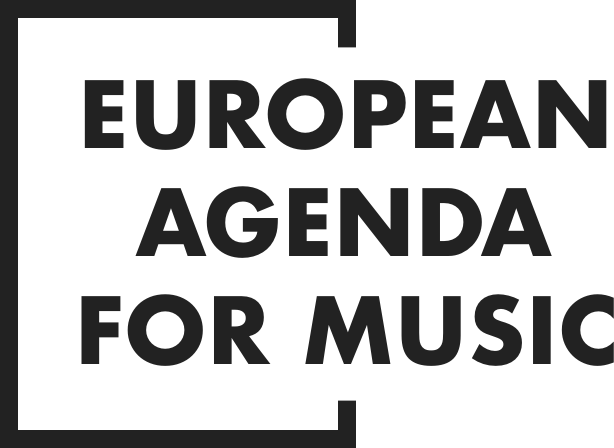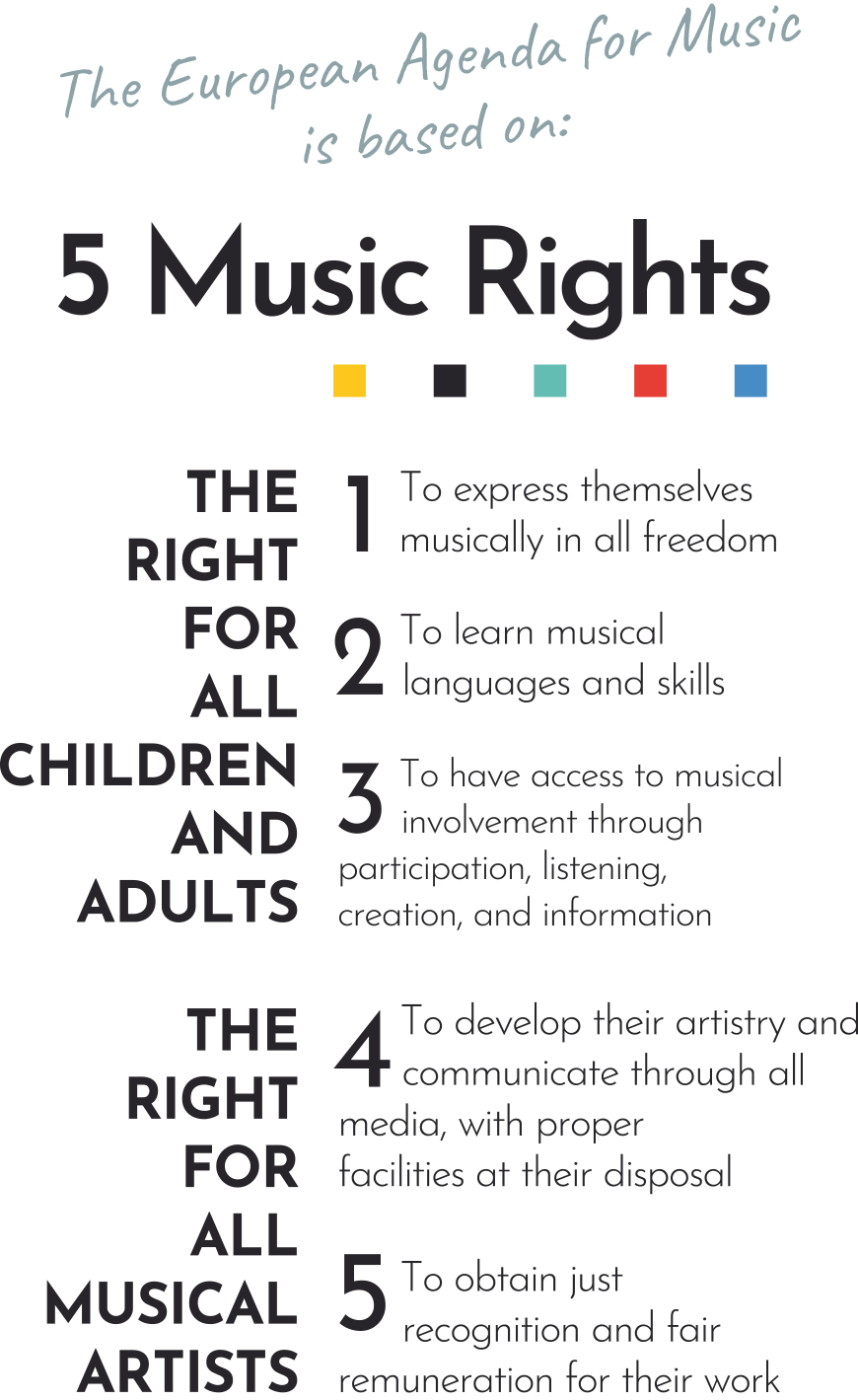
The European Agenda for Music aims to converge the European music sector’s many voices in order to establish an ongoing dialogue between policy makers and music sector stakeholders.
Music is one of the pillars of European culture. It has an intrinsic value, enriching and inspiring those who engage in it. Music is an art form and, as such, has contributed and continues to contribute immensely to Europe’s legacy, building a rich heritage that preserves and celebrates the diversity of our continent’s cultural identities. Music can also serve as a tool that promotes individual development and brings change to many levels of society: it is a formidable unifier of people, a natural vehicle for social engagement and inclusion and a powerful agent for democratic values. Finally, music is involved in a variety of products that contribute to international trade, economic growth and job creation.
In all of its manifestations, music is a tremendously precious resource for Europe.
We understand the European music sector to include all of the people, organisations and companies on the continent of Europe who contribute to or engage in a significant way with music: artist managers, booking agents, creators, conferences, composers, distributors, festivals, industry events, instrument makers, labels, musicians, performers, producers, promoters, publishers, researchers, sound engineers, technicians, teachers, trainers, music venue operators and more. This includes professionals (earning a living through this work) and non-professionals (engaging in music as a free-time activity).
As stakeholders of the European music sector, our motivation in developing the European Agenda for Music was based on the following convictions:
- Active participation in music for each and every citizen is a human right.
- Music represents and actively promotes values that unite Europeans such as diversity, tolerance, equality, freedom and solidarity.
- As a powerful driver of personal and societal growth, music can play an important role in society for identity and inclusion.
- Music education brings immeasurable benefits to the individual and to society as a whole.
- Music adapts to change and must further exploit the potential of technology.
- Music’s contribution to the economy is important and must be recognised.

Targeted change
- A stronger sense of European identity through a shared cultural vision
- A recognised and valued music sector and a better understanding of the needs of all its diverse components
- Improved access for each and every member of society to participate in music, in formal and non-formal settings
- Greater diversity in all parts of the music sector, including personal background, gender, music genre, type of venue, funding opportunities, etc.
- Increased professionalisation of the music sector
- A more balanced market for music that supports the work of small- and medium-size music companies and organisations
- A fair working environment for all workers in the music sector
- Increased opportunities for interaction within the music sector as well as with non-music sectors and across borders
- Concrete changes in legislation targeting a range of priorities at both European and national, regional and local level
- A funding framework that includes public and private support or combinations thereof, and that responds to the needs of a diverse music ecosystem

